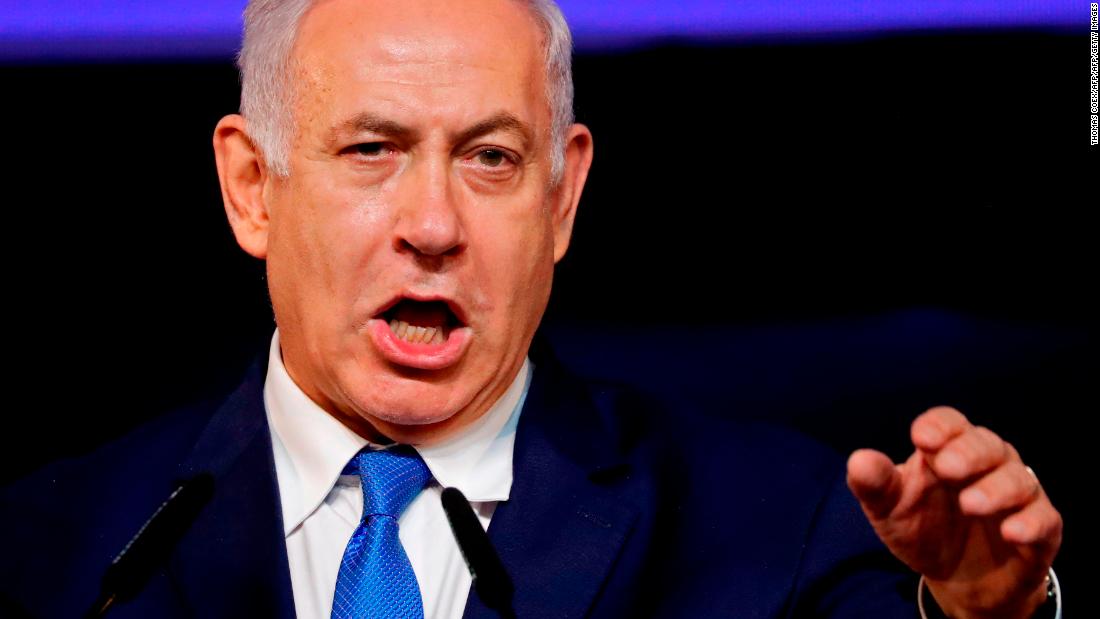
Hassan Nasrallah, the head of the Iran-backed Lebanese militant group, said that two Israeli drones crashed in the Hezbollah-dominated southern suburbs of Beirut, with one exploding.
Making reference to the same alleged incident, Lebanese Prime Minister Saad al-Hariri had earlier accused Israel of an attack on Lebanese sovereignty.
The Israeli army has refused to comment on reports of the two drones.
In his address to supporters Sunday evening, Nasrallah also spoke about Israel's airstrikes on a target near the Syrian capital Damascus on Saturday, vowing retaliation.
The Israeli military said those strikes foiled an imminent attack by Iran and a Shiite militia on north Israel. Nasrallah said the building targeted by Israel was used to house Hezbollah members, two of whom had been killed in the strike.
The Israel Defense Forces (IDF) said it carried out the operation to thwart an attack by Iran's Quds Forces, under the command of Qassem Soleimani, which had planned to launch multiple attacks on sites in northern Israel by what it called killer, or kamikaze, drones.
The IDF said an initial effort to fly the drones into Israel was made on Thursday but had been disrupted -- it did not say how - before Saturday's air-strikes prevented a further attempt.
Unlike more standard attack drones, which fire missiles towards their targets, the killer drone acts as its own missile by flying into the target itself.
The IDF said the combined payload of the drones was several kilograms.
United States Secretary of State Mike Pompeo said in a tweet that he spoke with Israeli Prime Minister Benjamin Netanyahu about the airstrikes in Syria and expressed his support "for Israel's right to defend itself from threats posed by the Iranian Revolutionary Guard Corps & to take action to prevent imminent attacks against Israeli assets."
But a senior Iranian official denied that any Iranian targets had been hit.
"This is a lie and not true," said Mohsen Rezaee, the secretary of the Iran's Expediency Discernment Council -- an advisory body to Iran's Supreme Leader, according to the semi-official Iranian Labor News Agency (ILNA).
"Israel and the US do not have the power to attack various Iranian centers and additionally, none of our advisory centers have been damaged," Rezaee added.
Tensions between Israel and Iran have been increasing for weeks.
Four days ago, Israel's Netanyahu made his strongest hint yet that Israel was responsible for a series of unexplained attacks on militia targets in Iraq in recent weeks.
During an interview on Israel's Channel 9 television Thursday, Netanyahu, who also acts as the country's defense minister, was asked whether Israeli forces "were acting in the whole region, including Iraq ... against the Iranian threat."
"We act in many arenas against a country which seeks to destroy us. Of course, I have given the security forces a free hand and the instruction to do what is needed to thwart these plans of Iran," Netanyahu said.
In that interview, Netanyahu accused Iran of "trying to establish bases against us everywhere, in Iran itself, in Lebanon, in Syria, in Iraq, in Yemen. I don't give Iran immunity anywhere."
The United States has added weight to the idea that Israel has opened up a new front by attacking sites in Iraq.
Two US officials told CNN the US government believes Israel was likely involved in a strike north of Baghdad in July, and likely targeted militia groups that have a close relationship with Iran.
The US officials also said the United States was looking at several possible scenarios that could involve Iran or its proxies carrying out an attack in retaliation.
Hashd al-Shaabi, a majority Shiite Iraqi paramilitary group, accused Israel of carrying out a drone attack in Anbar province on Sunday that led to the death of one of the group's members and the injury of a second, according to a statement from the group.
A spokesperson for the IDF declined to comment on the alleged attack.
No comments:
Post a Comment